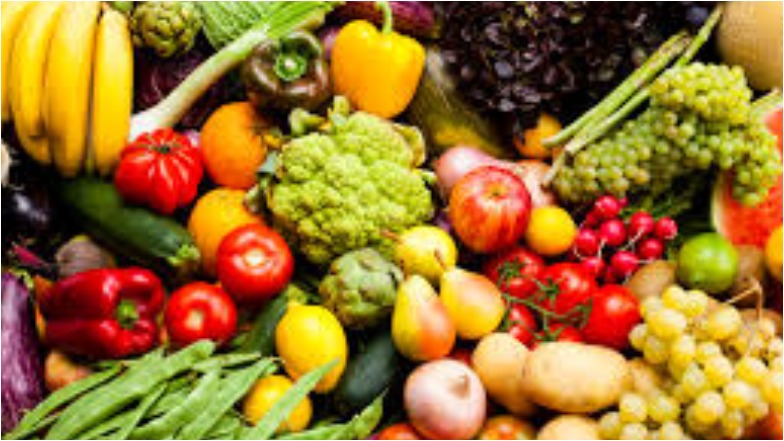
Fruits and vegetables can be beneficial for supporting kidney function and overall kidney health due to their nutrient content and hydration properties. Here’s how these foods contribute to kidney health:
- Hydration: Many fruits and vegetables have a high water content, which can contribute to proper hydration. Staying adequately hydrated is essential for kidney function as it helps maintain optimal blood volume and supports the kidneys’ ability to filter waste products and toxins from the blood.
- Potassium Regulation: Some fruits and vegetables, such as bananas, oranges, spinach, and sweet potatoes, are good sources of potassium. Potassium is an essential mineral that plays a crucial role in maintaining normal kidney function. Adequate potassium intake helps balance fluid and electrolyte levels, supporting kidney health.
- Antioxidants: Fruits and vegetables are rich sources of antioxidants, such as vitamins C and E and various phytochemicals. These antioxidants help protect the kidneys from oxidative stress and inflammation, which can contribute to kidney damage and impair their function.
- Low in Sodium: Most fruits and vegetables are naturally low in sodium, making them ideal choices for individuals with kidney conditions like hypertension (high blood pressure). Reducing sodium intake can help manage blood pressure and minimize the strain on the kidneys.
- Fiber Content: Many fruits and vegetables contain dietary fiber, which can help regulate blood sugar levels and support cardiovascular health. By promoting heart health, fiber indirectly contributes to kidney health since the kidneys depend on a healthy cardiovascular system for proper blood flow.
- Vitamin C: Vitamin C, found in fruits like oranges, strawberries, and kiwis, is involved in collagen formation and immune function. Collagen helps maintain the structural integrity of the kidneys, while a robust immune system can protect against kidney infections.
- Magnesium: Green leafy vegetables, nuts, and seeds are good sources of magnesium, a mineral that plays a role in kidney function and overall health. Magnesium helps regulate blood pressure and supports the kidneys in maintaining electrolyte balance.
- Phytochemicals: Fruits and vegetables contain various phytochemicals with potential health benefits, including those that may protect against kidney damage and inflammation.
It’s important to note that individual dietary needs may vary based on specific kidney conditions and overall health status. For individuals with kidney disease or other kidney-related issues, consulting with a healthcare professional or a registered dietitian is essential for tailoring the diet to their specific needs.
While fruits and vegetables can be beneficial for kidney health, other dietary factors, such as protein intake, phosphorus, and potassium restriction, may also be necessary for individuals with advanced kidney disease. A comprehensive approach that includes medical guidance, appropriate nutrition, and lifestyle modifications is crucial for supporting kidney function and overall kidney health.
